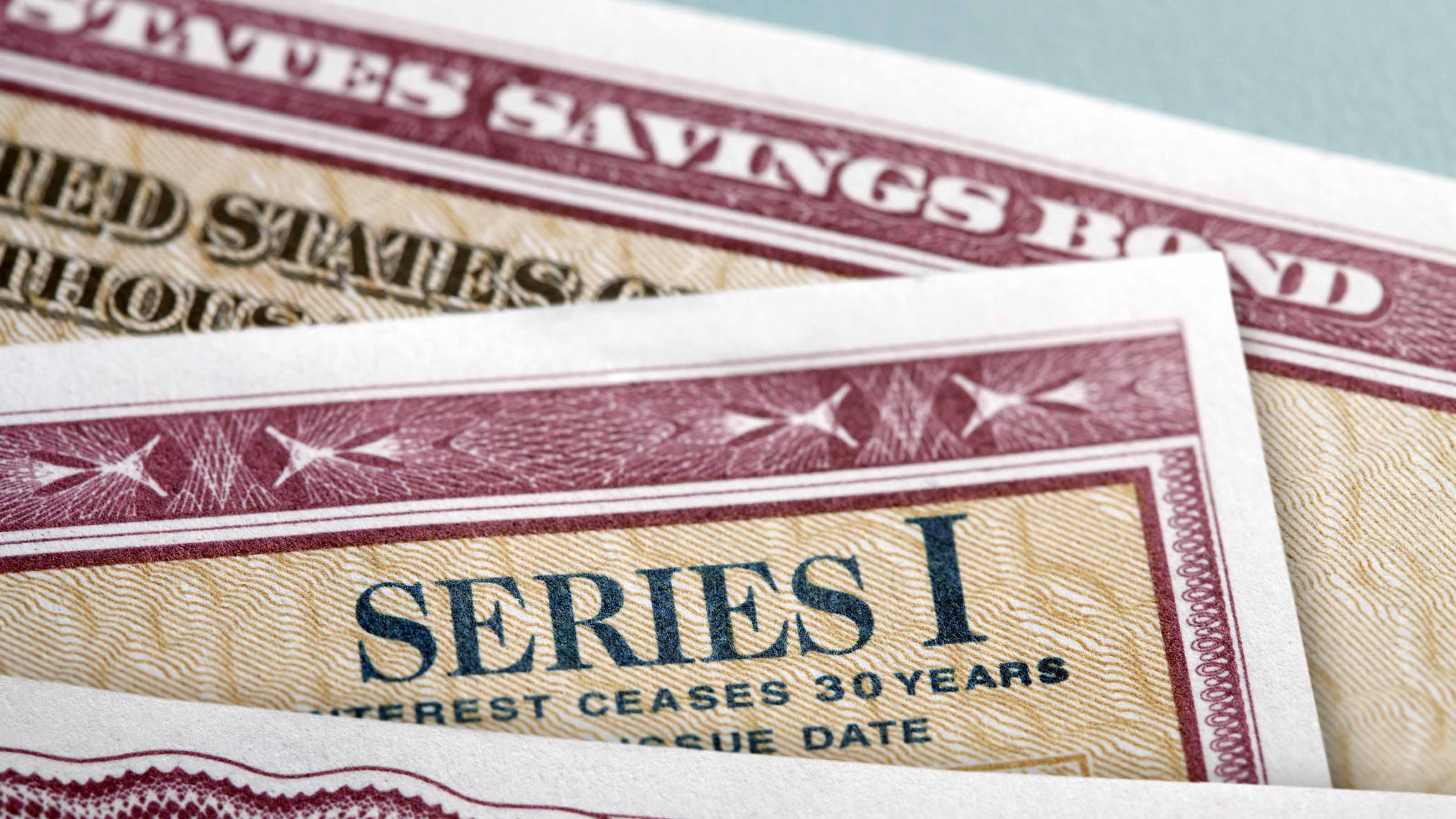Savings for Serial Refinancers
Usually, you can write-off un-deducted mortgage points on a refinancing in the year the loan is paid off with a subsequent refinancing.

Profit and prosper with the best of Kiplinger's advice on investing, taxes, retirement, personal finance and much more. Delivered daily. Enter your email in the box and click Sign Me Up.
You are now subscribed
Your newsletter sign-up was successful
Want to add more newsletters?

Delivered daily
Kiplinger Today
Profit and prosper with the best of Kiplinger's advice on investing, taxes, retirement, personal finance and much more delivered daily. Smart money moves start here.

Sent five days a week
Kiplinger A Step Ahead
Get practical help to make better financial decisions in your everyday life, from spending to savings on top deals.

Delivered daily
Kiplinger Closing Bell
Get today's biggest financial and investing headlines delivered to your inbox every day the U.S. stock market is open.

Sent twice a week
Kiplinger Adviser Intel
Financial pros across the country share best practices and fresh tactics to preserve and grow your wealth.

Delivered weekly
Kiplinger Tax Tips
Trim your federal and state tax bills with practical tax-planning and tax-cutting strategies.

Sent twice a week
Kiplinger Retirement Tips
Your twice-a-week guide to planning and enjoying a financially secure and richly rewarding retirement

Sent bimonthly.
Kiplinger Adviser Angle
Insights for advisers, wealth managers and other financial professionals.

Sent twice a week
Kiplinger Investing Weekly
Your twice-a-week roundup of promising stocks, funds, companies and industries you should consider, ones you should avoid, and why.

Sent weekly for six weeks
Kiplinger Invest for Retirement
Your step-by-step six-part series on how to invest for retirement, from devising a successful strategy to exactly which investments to choose.
Did you refinance a home mortgage last year to take advantage of low interest rates? Well, if you paid points on the loan, you need to know how the tax law treats that cost of refinancing.
Refinancing points are not treated the same way points paid when purchasing a home. When a purchase of a principal residence is involved, points are fully deductible in the year paid. Because each point equals 1% of the loan amount, paying two points on a $250,000 mortgage costs $5,000 and translates to an immediate $5,000 deduction.
When you refinance, though, the rules aren't so generous. Instead, you deduct the points over the life of the loan. That means 1/30th a year in the case of a 30-year loan -- just $166 a year in the case of that $250,000, two-point deal. (And, of course, you don't get a full year's deduction for the first year, unless you happened to settle on New Year's Day, which means you have to prorate the write-off.)
From just $107.88 $24.99 for Kiplinger Personal Finance
Become a smarter, better informed investor. Subscribe from just $107.88 $24.99, plus get up to 4 Special Issues

Sign up for Kiplinger’s Free Newsletters
Profit and prosper with the best of expert advice on investing, taxes, retirement, personal finance and more - straight to your e-mail.
Profit and prosper with the best of expert advice - straight to your e-mail.
But what happens if the loan you refinanced in 2007 was one you had refinanced earlier? Well, the general rule is that any points not-yet-deducted on the first refinancing can be deducted in the year the loan is paid off with the second refinancing. That's a real money saver for serial refinancers -- and I know there are a lot of you out there.
But notice I said that's the "general rule." There's an exception that might deny you that big write-off.
The IRS says that if you refinanced the loan with the same lender -- as homeowners often do to hold down costs -- then the points from the first refinancing are not suddenly deductible. Instead they are to be added to the points charged on the second refinancing and deducted over the life of that loan.
Why the discrimination against homeowners who refinance with the same lender? I don't know. Maybe you should ask your representatives in Congress who make the law.
Profit and prosper with the best of Kiplinger's advice on investing, taxes, retirement, personal finance and much more. Delivered daily. Enter your email in the box and click Sign Me Up.

-
 Over 65? Here's What the New $6K 'Senior Deduction' Means for Medicare IRMAA Costs
Over 65? Here's What the New $6K 'Senior Deduction' Means for Medicare IRMAA CostsTax Breaks A new deduction for people over age 65 has some thinking about Medicare premiums and MAGI strategy.
-
 U.S. Congress to End Emergency Tax Bill Over $6,000 Senior Deduction and Tip, Overtime Tax Breaks in D.C.
U.S. Congress to End Emergency Tax Bill Over $6,000 Senior Deduction and Tip, Overtime Tax Breaks in D.C.Tax Law Here's how taxpayers can amend their already-filed income tax returns amid a potentially looming legal battle on Capitol Hill.
-
 5 Investing Rules You Can Steal From Millennials
5 Investing Rules You Can Steal From MillennialsMillennials are reshaping the investing landscape. See how the tech-savvy generation is approaching capital markets – and the strategies you can take from them.
-
 The 'Scrooge' Strategy: How to Turn Your Old Junk Into a Tax Deduction
The 'Scrooge' Strategy: How to Turn Your Old Junk Into a Tax DeductionTax Deductions We break down the IRS rules for non-cash charitable contributions. Plus, here's a handy checklist before you donate to charity this year.
-
 How Are I Bonds Taxed? 8 Common Situations to Know
How Are I Bonds Taxed? 8 Common Situations to KnowBonds Series I U.S. savings bonds are a popular investment, but the federal income tax consequences are anything but straightforward.
-
 Could Tax Savings Make a 50-Year Mortgage Worth It?
Could Tax Savings Make a 50-Year Mortgage Worth It?Buying a Home The 50-year mortgage proposal by Trump aims to address the housing affordability crisis with lower monthly mortgage payments. But what does that mean for your taxes?
-
 An HSA Sounds Great for Taxes: Here’s Why It Might Not Be Right for You
An HSA Sounds Great for Taxes: Here’s Why It Might Not Be Right for YouHealth Savings Even with the promise of ‘triple tax benefits,’ a health savings account might not be the best health plan option for everyone.
-
 Cruise Lines Sue to Block Hawaii’s New Climate Tourism Tax
Cruise Lines Sue to Block Hawaii’s New Climate Tourism TaxState Tax Your vacation to the Aloha State could come at a higher price tag next year. Here’s why.
-
 21 Last-Minute Gifts for Grandparents Day 2025 to Give Right Now
21 Last-Minute Gifts for Grandparents Day 2025 to Give Right NowHoliday Tips Last-minute gifting is never easy. But here are some ideas to celebrate Grandparents Day.
-
 The Fall Garden Tax? What to Plant and How to Prepare
The Fall Garden Tax? What to Plant and How to PrepareTax Tips Fall gardening could increase your taxes this season. Here’s what to know while planting in 2025.
-
 Texas Sales Tax-Free Weekend 2025
Texas Sales Tax-Free Weekend 2025Tax Holiday Here's what you needed to know about the Texas sales tax holiday.